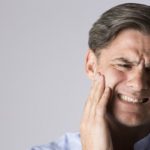 With the hustle and bustle of the holidays behind us, the beginning of 2017 is the year to make your dental health a priority. Taking care of your oral health boils down to three simple tasks — brushing, flossing and going to the dentist regularly.
With the hustle and bustle of the holidays behind us, the beginning of 2017 is the year to make your dental health a priority. Taking care of your oral health boils down to three simple tasks — brushing, flossing and going to the dentist regularly.
Sounds easy, right? While dental appointments can sometimes seem like a hassle, it’s another story for patients suffering from dental anxiety or phobia. For these particular patients, dental appointments evoke feelings of nervousness, anxiety or even terror.
Recent research from West Virginia University suggests that some genes may influence the development of dental fear. Dr. Edward Gottesman explains more about this recent study and how patients can combat problems with dental fear.
The Basics Of Dental Fear
Dental fear and dental phobia shouldn’t be used interchangeably. Although these two issues are related, they are not quite the same. Dental fear refers to the anxiety or nervousness a patient feels toward dental appointments, while a phobia is a more serious condition. Patients with dental phobia will feel extreme fear or terror at the thought of seeing the dentist.
Fear or phobia can prevent patients from seeking dental care that they really need. Missing out on routine dental check-up appointments is dangerous for a few reasons, including:
Fear Or Phobia Continues: Not going to the dentist for routine visits allows patients to continue their unhealthy fear. This can cause patients to avoid facing the problem for years and in turn, end up harming the health of their smile.
Minor Dental Problems Worsen: A thorough cleaning from a dental professional isn’t the only perk of a check-up appointment. At these routine appointments, your dentist will also look for early signs of gum disease, tooth decay or any other dental ailment. Catching these problems in their early stages will prevent the pain and cost of extensive treatment. If you continue to avoid check-up appointments, any minor problems can worsen and become severe dental problems.
Developing a fear of the dentist is not an uncommon problem. Daniel W. McNeil, Ph.D., professor of psychology and clinical professor of dental practice and rural health at West Virginia University, estimated in his book, Behavioral Dentistry, that nearly half of American adults have at least moderate levels of dental-related fear. Results from a British Dental Health Foundation survey echo the same sentiment with approximately 36% of participants avoiding the dentist due to fear.
The cause of dental fear will vary from patient to patient and is largely dependent on individual experiences. The three most common reasons patients develop dental fear or phobia include:
- Fear Of Pain: Fear of pain is often found in older patients who experienced painful dental visits as children. Fortunately, modern tools and techniques provide a pain-free dental experience for patients today. Still, the pain of past experiences can affect patients’ attitude towards dental appointments as an adult.
- Fear Of Loss Of Control: For other patients, feelings of helplessness or loss of control is enough to spur on dental fear. Laying back in a dental chair with a dentist examining your mouth can feel like a vulnerable situation, especially for patients who already struggle with anxiety, panic disorders or PTSD.
- Embarrassment: Embarrassment is the major contributing factor for patients who have gone years without seeing the dentist. Feeling insecure or embarrassed about the state of their dental health can contribute to fear of ridicule.
- Other Reasons: Other various reasons that contribute to dental fear include a sensitive gag reflex, fear of dental tools or mistrust of dental professionals.
Do Genetics Affect Dental Fear?
It’s simple to understand how patients can develop a fear of the dentist, however, researchers at West Virginia University believe that genetics may also play a role. This particular study is the first to suggest that genetics, not just environmental factors, lead to dental fear.
Researchers looked at a family-based study from the Center for Oral Health Research in Appalachia. The study was comprised of 732 families with 1,370 participants, ranging from ages 11 to 74. Participants completed a 20-item survey about their psychological responses to dental care and a questionnaire about fear of pain. The results found that fear of pain was estimated to be 35% passed down through generations and dental fear was 330% genetically influenced.
Of course, it could be a combination of both genetic and environmental factors that contribute to dental fear. It’s best to determine the root cause of your fear to learn how to overcome it. Some of the best ways to combat dental fear include:
• Choosing a dentist you trust
• Meeting with the dentist beforehand to discuss your concerns
• Practicing relaxation techniques
• Sedation dentistry
• Bring a close friend or family member for support
• Seek professional help from a psychologist
Contact PerioNYC
Don’t wait to address your dental health concerns! Here at PerioNYC, we offer top-quality dental services with sedation available to provide patients with a stress-free experience. Contact our office to find out how we can transform your smile.


